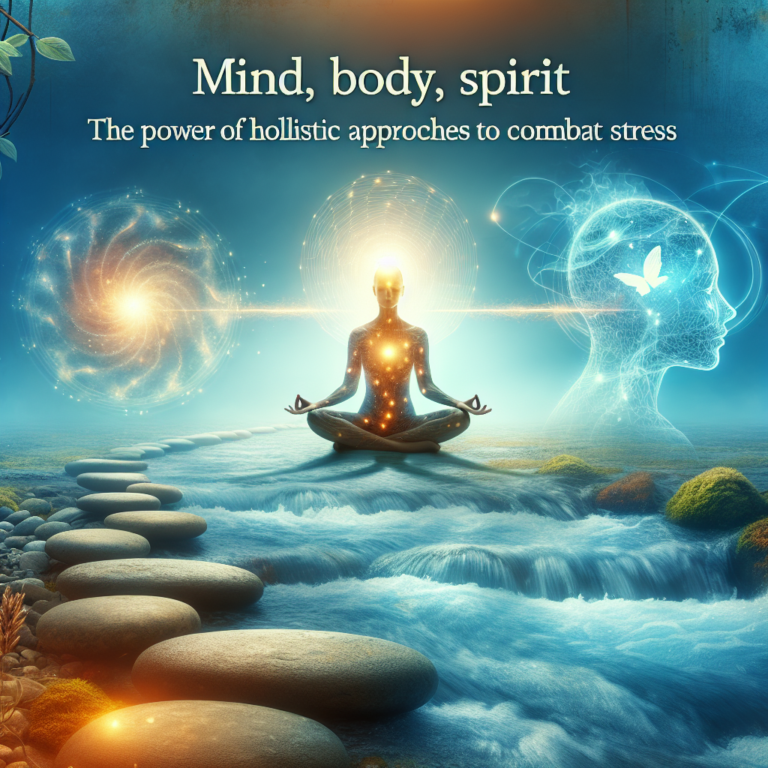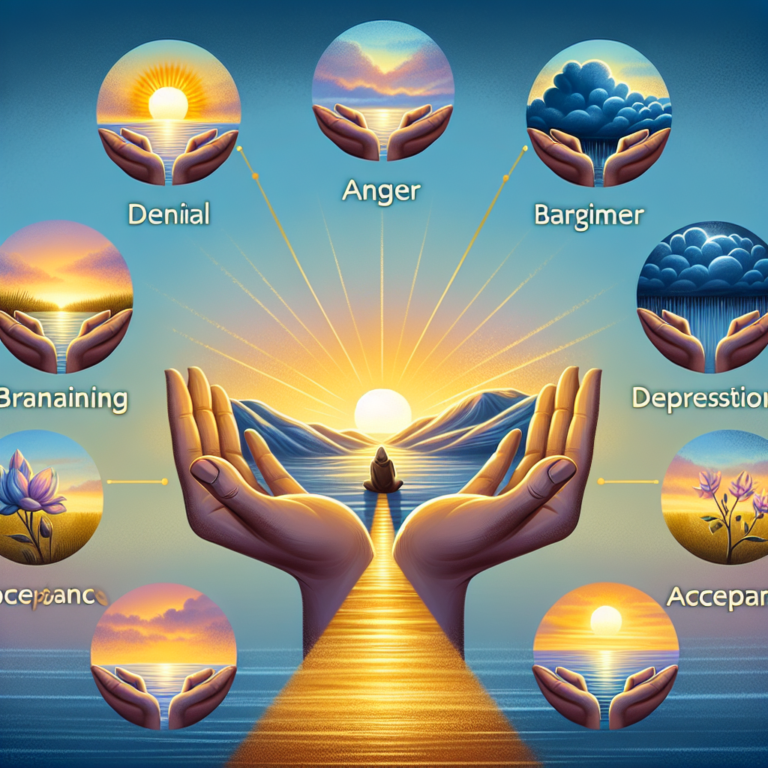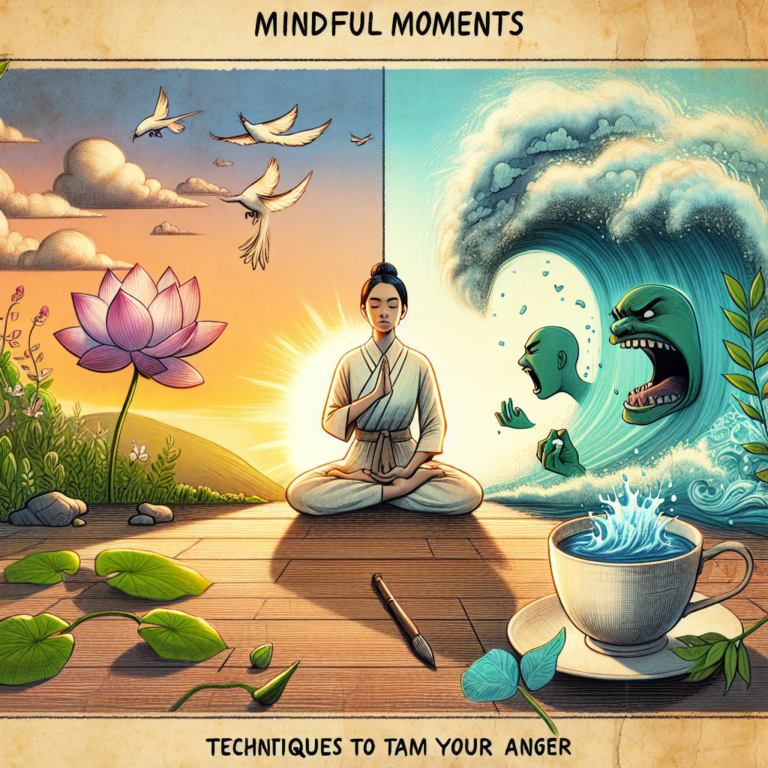
Unlocking Inner Peace: Essential Holistic Methods for Managing Stress
Introduction
In today’s fast-paced world, stress is an ever-present companion for many, impacting our physical health, mental clarity, and emotional well-being. The pursuit of unlocking inner peace is not just a trendy self-care mantra; it’s an essential journey for those seeking tranquility amidst chaos. In this article, we’ll explore holistic methods for managing stress that are both effective and sustainable. By embracing these practices, we can cultivate a life filled with balance, purpose, and serenity.
The Importance of Inner Peace
Inner peace is more than just a state of mind; it is a profound sense of well-being that permeates our actions and interactions. It fosters resilience against stressors, enhances relationships, and promotes better physical health. Unlocking inner peace allows us to respond to challenges with grace, creativity, and positivity.
Understanding Stress: A Holistic Perspective
What is Stress?
Stress is the body’s natural response to perceived threats. While it can be beneficial in short bursts—helping us thrive in emergencies—chronic stress poses significant health risks. Understanding stress’s nature is the first step toward effective management.
The Holistic Approach
A holistic approach to stress management considers the whole person: mind, body, and spirit. Rather than addressing symptoms in isolation, holistic methods seek to harmonize these interconnected aspects of our being.
Holistic Methods for Managing Stress
1. Mindfulness Meditation
Mindfulness meditation involves focusing on the present moment without judgment. This practice can lead to significant reductions in stress levels.
Case Study: Sarah’s Journey
Sarah, a busy executive, struggled with anxiety and frequent burnout. After incorporating mindfulness meditation into her daily routine, she noticed a dramatic decrease in her stress levels. Her ability to focus improved, and her relationships flourished as she became more present and engaged.
Benefits of Mindfulness
- Reduces the levels of cortisol, the stress hormone.
- Enhances emotional regulation.
- Strengthens the immune system.
2. Yoga and Physical Activity
Yoga combines physical postures, breathing techniques, and meditation, making it an excellent tool for unlocking inner peace.
Case Study: Mark’s Transformation
Mark, a dedicated runner, added yoga to his weekly routine to complement his training. He discovered that yoga not only improved his flexibility but also helped him find mental peace. The integration of breathwork into his practice allowed him to manage stress effectively, both on and off the track.
Benefits of Yoga
- Promotes relaxation through focused breathing and movement.
- Encourages body awareness and acceptance.
- Builds community and social support through classes.
3. Nutrition and Diet
What we eat significantly impacts our mental health. A balanced diet rich in nutrients can enhance our resilience against stress.
Nutrient-Dense Foods for Stress Management
| Nutrient | Benefits |
|---|---|
| Omega-3 Fatty Acids | Reduces anxiety and improves mood. Found in fish, walnuts, and flaxseeds. |
| Antioxidants | Combat oxidative stress caused by free radicals. Found in berries, dark chocolate, and green leafy vegetables. |
| Magnesium | Known to alleviate anxiety and promote relaxation. Found in spinach, nuts, and whole grains. |
4. Nature Therapy
Spending time in nature allows us to disconnect from the pressures of daily life and reconnect with our inner selves.
Case Study: Lisa’s Retreat
Lisa, feeling overwhelmed from work, took a weekend retreat in the mountains. Immersed in the beauty of nature, she experienced a profound sense of calm and clarity. This therapy revitalized her spirit and change her outlook on managing stress.
Benefits of Nature Therapy
- Improves mood and self-esteem.
- Enhances creativity.
- Lowers levels of anxiety and depression.
5. Journaling
Writing about our thoughts and feelings can be therapeutic and cathartic, allowing us to gain insights into the root causes of our stress.
Case Study: Jake’s Reflection
Jake, a university student, faced academic pressure that led to significant anxiety. By journaling, he identified his triggers and developed coping strategies, which transformed his academic experience and improved his mental health.
Benefits of Journaling
- Clarifies thoughts and emotions.
- Aids in recognizing patterns and triggers.
- Empowers through self-reflection.
Building a Personalized Stress Management Plan
To truly unlock inner peace, it’s essential to create a personalized action plan that incorporates various holistic methods. Here are steps to consider:
Step 1: Self-Assessment
Identify your stress triggers, current coping mechanisms, and emotional responses. This self-awareness will inform which methods may work best for you.
Step 2: Setting Goals
Set achievable and measurable goals that align with your quest for inner peace. Whether it’s practicing mindfulness for 10 minutes daily or incorporating a weekly yoga class, consistency is key.
Step 3: Experimentation
Try different holistic methods to discover what resonates most with you. It’s essential to remain open and adaptable in your approach.
Step 4: Evaluation
Regularly assess your progress. What changes do you notice in your stress levels and overall well-being? Adjust your plan as needed.
Conclusion
Unlocking inner peace is a personal journey that requires commitment, self-awareness, and the courage to explore holistic methods for managing stress. By integrating mindfulness, physical activity, proper nutrition, nature therapy, and journaling into our lives, we can foster a profound sense of tranquility.
As you embark on your path to serenity, remember that every effort is a step toward a balanced life. Embrace the journey, cherish the small victories, and allow your quest for inner peace to inspire those around you.
FAQs
1. What is the quickest way to reduce stress?
Engaging in deep-breathing exercises or a short mindfulness meditation can provide immediate relief.
2. How often should I practice mindfulness or yoga?
Aim for at least 10-15 minutes daily, gradually increasing the duration as you become more comfortable with the practice.
3. Can diet really affect my stress levels?
Yes, a balanced diet rich in nutrients can positively influence your mood and resilience against stress.
4. How long does it take to feel the effects of these holistic methods?
While some methods, like meditation, can yield immediate effects, others may require consistent practice over weeks or months to see significant changes.
5. Is it necessary to see a professional when managing stress?
If stress becomes overwhelming or chronic, seeking guidance from a mental health professional can provide valuable support and resources.
By focusing on unlocking inner peace with holistic methods for managing stress, we can lead not only healthier lives but can also foster meaningful connections with ourselves and those around us. Embrace this journey today, and watch as your life transforms into one of balance and harmony.















